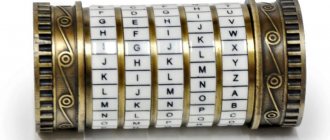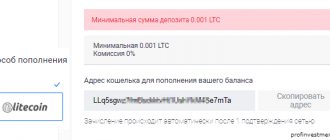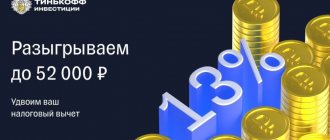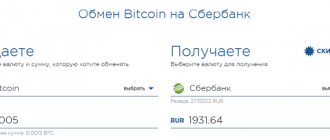Dirty coins are digital assets stolen from exchanges or used for criminal purposes. Almost any type of coin can be “dirty”: Bitcoin, Ethereum, Bitcoin Cash, Litecoin, stablecoins or ERC-20 tokens.
Today, cryptocurrency platforms are mainly focused on monitoring the “purity” of military-technical exchange and ETH, but as AML requirements become more stringent, they will pay more and more attention to other cryptocurrencies, writes RBC Crypto.
Data on the extent of crypto-crime vary widely. According to Europol estimates from 2022, about $5.5 billion of illegal and criminal funds in cryptocurrencies are laundered in Europe every year.
According to recent data from Chainalysis, a company that tracks crypto transactions, criminals laundered about $2.8 billion in cryptocurrencies last year (in 2022 - $1 billion). Analysts believe that the bulk is laundered through over-the-counter brokers - agents or firms that carry out transactions between buyers and sellers, bypassing crypto exchanges.
According to July data from the analytical company Peckshield, since the beginning of 2020, about 147,000 BTC, or about $1.5 billion, have been laundered through large crypto exchanges. The analytical company CipherTrace estimates that in the first 5 months of this year, criminals stole $1.4 billion in cryptocurrency, and after all of last year - $4.5 billion.
It is difficult to say how much of these funds are flagged by exchanges. But we are probably talking about billions of dollars. There is a risk that these funds may ultimately end up in the hands of a respectable user who is far from criminal.
That is why “clean”, recently mined and unused coins are preferred by buyers more and are more expensive. In August, crypto investor Ari Paul predicted that within a year or two, most regulated crypto platforms would only allow withdrawals to whitelisted addresses.
How can dirty coins get into a wallet?
Regulated trading platforms and cryptocurrency exchangers carefully monitor the circulation of dirty coins. They flag assets that have been found to be involved in illegal activities.
To confuse their tracks and whitewash coins, attackers run “dirty” assets through several circles, using:
- gambling platforms,
- cryptomixers,
- cryptocurrency ATMs,
- dividing transactions into small parts,
- unregulated sites,
- prepaid cards.
Often compromised assets are sold at a deep discount.
As a result, “dirty” cryptoassets can end up in the wallet of the most law-abiding user. It is impossible to buy “tainted” assets on regulated exchanges and exchangers that comply with KYC/AML policies - such coins simply do not end up in their wallets, the sites block them. But a user can easily buy “dirty” coins from an unregulated exchanger, on a dubious exchange, or receive them as payment.
Layering
When goods or money from ATMs are obtained by accomplices acting consciously, the loot is legalized according to long-established schemes of ordinary crime. Money is exchanged for freely convertible currency (most often dollars); things (most often electronics) are handed over to buyers. Of course, both exchange offices and stores that buy items must have some kind of mechanisms in place to detect potentially illegal transactions, but they most often get around, either through negligence or through the use of bribes. The money received is transferred through some third parties to the organizers of the scheme. Of course, mules can be caught. But the most that representatives of the law can find is the mules themselves and their percentage. Neither the bulk of the stolen goods nor the contacts of the organizers of the crime could be found.
Next, cash is about criminal schemes: buying jewelry or metals (this business still often prefers to work with cash) or buying and then selling chips in a casino.
If the money is transferred further by bank transfer, then shell companies operating in different countries are involved in the process. They are usually located in countries where there are no strict controls over financial transactions, or where there are very strict laws protecting the secrets of commercial transactions. Several transfers with splitting and conversion into different currencies - and now the origin of the money cannot be traced. And these are not necessarily fly-by-night companies; they may also have a partially legal business, into which the stolen money flows in an imperceptible stream.
Relatively recently, cryptocurrencies began to be used for money laundering. They attract attackers because the user does not need to provide his personal data to complete transactions. However, this method is not as simple as it seems. Indeed, along with anonymity, blockchain-based currencies are also absolutely transparent. So you have to make a lot of transactions to withdraw funds. For example, in 2022, the Lazarus group, after hacking a cryptocurrency exchange, withdrew $30 million, and then made 68 transfers between different wallets in four days.
What problems do “dirty” coins bring?
If “dirty” coins or tokens get into the user’s crypto-wallet, all assets in it will be compromised, and the wallet itself will be blacklisted. Trading platforms will not figure out which coins the attackers used, and will automatically count all coins in the wallet as used in illegal activities.
If this is a wallet on an exchange, it will be blocked until the end of the investigation, you will be required to undergo verification (if you have not passed it before) and explain the origin of the funds. In some jurisdictions, for example in the United States, the user may face a fine for “dirty” coins - this is considered to be participation in money laundering. In Russia and the CIS, the use of “dirty” coins is not yet prohibited.
If this is a user's wallet, coins from it will not be accepted on any regulated platform. Exchanges exchange data with each other about stolen coins, compile a blacklist of stolen assets and compromised wallets. Selling dirty cryptocurrencies on unregulated platforms or to individuals can also be difficult. If the buyer notices that the coins are “dirty”, he will either refuse the deal or ask for a very good discount.
Regulation could be devastating for cryptocurrencies
According to the same Justin Hall, some believe that the introduction of rules could seriously undermine privacy - the main advantage of cryptocurrencies.
“In their opinion, traditional currencies are under enormous pressure from government and bank interventions. Cryptocurrencies are anonymous (to a certain extent) and decentralized, that is, no one can single-handedly influence them. In a fiat environment, the level of trust is determined by a third party,” says Hall.
On the other hand, Hall emphasizes that critics do not deny the benefits of regulation in terms of protecting investors, and this, according to him, these two poles are practically irreconcilable. What's more, Hall says, given the newness of the technology, many regulators simply "don't yet fully understand this rapidly evolving industry."
Ill-conceived policies do more harm than good.
Both the Monetary Authority of Singapore and the US Securities and Exchange Commission have studied the cryptocurrency market. Back in March 2014, the Monetary Authority of Singapore stated that virtual currencies themselves are not regulated, but the activities of entities using these currencies should be regulated in order to prevent money laundering and the financing of terrorist organizations.
“Even if Americans or Singaporeans are officially banned from participating in ICOs, there is nothing stopping them from purchasing tokens on exchanges while maintaining a high degree of anonymity,” says Justin Hall.
There is also a widespread belief among investors and company owners that ICO operations are currently not regulated. In particular, this is stated by David Tee, financial director of ANX International, located in Hong Kong. As a result, he said, many ICO projects are carried out in the absence of professional and technical support. This will most likely lead to data corruption, dubious transactions, flaws in token design, incorrect execution of smart contracts and their poor security against hacking.
All this, of course, begs the question: why should anyone, given this climate, take the risk of investing in an ICO? For most, the answer is simple: they rely on the production of money supply.
David Tee, who worked in banking for many years, explained in an interview with CNBC that digital tokens “express contractual rights in the form of a liquid supply.” According to him, these rights provide many opportunities. “...Or it could be the right to exchange tokens for other assets, receive payments in the future, or jointly invest their profits and income in developing projects.”
If the rights that tokens give us fall into this category, then from the perspective of most legislation, they are securities, “regardless of whether they are represented by digital tokens, contracts or formal assets such as shares or debt obligations,” thinks T.
Currently, in order to avoid regulatory pressure, the curators of many ICO projects prevent residents of the United States and Singapore from participating in operations, either by blocking protocol addresses or obliging participants to declare their data. However, as experts assured in an interview with CNBC, these restrictions can be easily circumvented by using private networks, which makes it impossible to determine the user's location, or by involving a third party acting on his behalf.
Even if Americans or Singaporeans are officially prohibited from participating in ICOs, nothing prevents them from purchasing tokens on exchange exchanges, while maintaining a high degree of anonymity,” says a representative of Golden Gate Ventures’ Hall.
How do sites track “dirty” coins?
Regulated exchanges and exchanges carefully monitor the use of compromised coins. These are the requirements of regulators: from January 2022, the Fifth EU Anti-Money Laundering Directive (AMLD5) came into force, requiring sites to monitor users’ crypto transactions, maintain their registries, exchange data with each other and report suspicious transactions to the authorities. National laws are often no less stringent, and FATF members are also guided by the organization's recommendations on regulating cryptocurrencies, formulated last June.
Large platforms have a special department that monitors suspicious transactions. “Dirty” coins are identified using bots, automatic notification systems (alerts) and manual checks.
The use of mixers - programs and services for anonymizing transactions - is also perceived by regulated sites as an attempt to launder funds and is a reason to block an account. The exchange does not care what exactly the user used the mixer for. According to Chainalysis statistics, 90% of mixer users use them only for privacy purposes and not for illegal activities. Mixers are not prohibited by international AML regulations, but exchanges are playing it safe. They will not necessarily block an account that is found to be using coins that have passed through the mixer, but such a wallet will definitely come under control.
Exchanges mainly use third-party solutions to monitor suspicious transactions to optimize AML processes. The most popular solutions are from Chainalysis, CipherTrace and Elliptic. They are used by regulated exchanges and exchangers, as well as by law enforcement agencies.
For example, CipherTrace's solution tracks the bulk of all digital assets. The company’s system monitors crypto-transactions and assigns a risk level to wallets on a ten-point scale, depending on whether the funds in it were used in scam projects, mixers, purchases on the darknet, hacker attacks, extortion, drug trafficking, or terrorist financing. Unlike Chainalysis, CipherTrace can visualize transactions by graphically showing the path of dirty coins.
All compromised wallets and coins are added to a blacklist, which can be accessed by trading platforms using the CipherTrace solution. After this, exchange systems can only block “dirty” funds and close accounts found to be in violation of AML requirements.
Latest Cybercrime Trends Related to Bitcoin
Some researchers believe that as many as 46% of all transactions made with bitcoins are somehow related to some kind of illegal activity. However, judging by more current and recent data, the situation is not as bleak as it seems at first glance.
The volume of crypto-crimes is rapidly declining. The total amount of crypto assets involved in illicit activity in the first ten months of 2022 was $1.8 billion, according to CypherTrace. And in 2022, this figure was almost 2.5 times higher and amounted to $4.5 billion. This includes hacking, theft and Darknet transactions. For example, in September 2022, hackers stole $150 million from KuCoi alone. Most of these funds likely went to small, unregulated exchanges where they were purchased by unsuspecting users. Darknet activity is intensifying. A recent Chainalysis report found that nearly $790 million in cryptocurrency was sent to and from the dark market in 2022.
Only a few of the largest Bitcoin addresses contain more than 1% of “dirty” or suspicious coins. The study was conducted using data from AMLBot, an open source crypto tracking software. Instead of trying to sort through thousands of random addresses, the 100 richest BTC addresses were looked at. An interesting fact is that AMLBot only flagged six of them as containing tokens related to Darknet transactions. Another 15 addresses contained coins that were involved in other fraudulent projects.
Thus, we can come to the conclusion that although illegal activities using cryptocurrency are quite common, it is not worth over-hyping it. But, of course, this does not mean that you should not be vigilant
What to do if your wallet is blocked?
If the platform has blocked a wallet for compromised coins, it is necessary to cooperate with support as much as possible. First of all, you need to undergo full verification (if this has not been done before): provide photos or scans of documents confirming your identity and the source of funds in the account.
There are several ways to prove your innocence. For example, provide screenshots showing the transfer or purchase of “dirty” coins. It will be easier for the exchange to check if “dirty” coins were purchased from a bank card or through an electronic wallet. Purchases made with cash cannot be tracked.
Arguing is ineffective - threats will not convince the security service of innocence. But maybe a screenshot of the transaction.
All cases are reviewed individually by the site's AML officer. If the user is proven innocent, the compromised assets will be returned to the user's original wallet or other address.
Is it legal to block accounts for conducting cryptocurrency transactions?
It would seem that since the only legal means of payment is the ruble, then blocking can be carried out in relation to “ordinary” bank cards. But, since banks do not have any special instructions regarding cryptocurrency user accounts, the general norms of the “anti-money laundering” Law of 08/07/2001 No. 115-FZ apply.
And in this sense, blocking the user’s personal accounts has a legal basis and is confirmed by judicial practice (Appeal ruling of the Moscow City Court dated August 20, 2019 No. 33-36978/2019).
After all, banks are guided by Bank of Russia Regulation No. 375-P dated March 2, 2012, and since October 2022, the list for blocking accounts has expanded. Thus, transactions related to the circulation of digital currency (code 1190) and the circulation of digital rights for large amounts (code 1137) are suspicious.
How to avoid becoming the owner of “dirty” coins?
There are several ways to reduce the likelihood of accidentally getting “dirty” coins into your wallet:
- Check the origin of coins through special services and applications. For example, Chainalysis, Chainalysis KYT, Crystal, IdentityMind, Longhash, Traceer. Recently, Etherscan, an Ethereum blockchain explorer, added the ability to verify the origin of cryptocurrencies using the ETHProtect feature. CipherTrace also has a mobile solution for tracking dirty coins;
- Buy digital assets only on regulated trading platforms. In this case, you can be sure of the “purity” of the purchased cryptocurrencies;
- Use two wallets: one for “clean” coins from regulated platforms and mining, the other for unverified coins from unreliable sources. All coins from exchangers from the popular site bestchange.com, little-known exchanges or individuals must first be transferred to a second wallet. Then, if compromised assets get into it, the coins in the first one will remain untainted;
- Verify sender transactions and buy assets in parts. You can ask to make a test transfer to a special wallet and check the coins in it;
- Record all your actions with cryptocurrency: transactions, recipients, time and date, platform. Then, in case of accidental purchase of “dirty” coins, you will be able to prove your own innocence.
A hotbed of fraud and corruption
Regulators in the US and Singapore have in recent weeks raised the risk of money laundering and fraud faced by investors involved in digital token transactions.
The Monetary Authority of Singapore, the country's financial regulator and central bank, officially stated on August 1 that ICOs "pose a threat of money laundering and terrorist activities due to the anonymity of monetary transactions and the possibility of earning huge sums in a negligibly short time."
At the same time, the US State Securities and Stock Market Commission publishes recommendations for investors on its official website and strongly advises that they familiarize themselves with them before making transactions. Some key points encourage potential token buyers to take steps to identify dubious schemes.
While terrorism is not as common in the Asia-Pacific region as it is in the Middle East and North Africa, experts told CNBC that the high likelihood of criminal activity in the cryptocurrency space has become a major cause of concern among officials.
“This is an anonymous platform through which you can become involved in illegal transactions, or intentionally participate in them, transfer funds ... all this can be done without revealing your data,” Tim Phillips, head of the Center for the Study of Strategy and Industry, told CNBC in an interview. Deloitte's fight against financial crimes.
Traditionally, to prevent illegal actions, companies are advised to comply with security measures, that is, carefully study clients, their data, and sources of income. This is especially true for users who, according to Phillips, have previously dealt with the Australian Securities and Investments Commission.
Also, companies are required to structure their products. This process can be expensive.
Phillips says that ICOs and cryptocurrencies are just new dimensions of a problem that has existed for centuries: “People are always looking for ways to get around all kinds of regulatory processes, laws, etc.”
How to get rid of “dirty” coins?
There is no ideal and completely legal option to get rid of compromised assets. If you try to transfer dirty coins to regulated platforms, your account will be blocked and your wallet will be blacklisted.
You can use mixers, transfer them to a decentralized p2p platform or an unregulated exchange that does not conduct KYC/AML checks, sell them for cash, scatter them across several wallets, sell them on the black market. This will help get rid of compromised assets. But from the point of view of AML legislation in some jurisdictions, such actions are tantamount to money laundering. In Russia and the CIS, this issue is not specifically regulated.
Break the mixer
Tracing transactions after a crypto-laundromat is difficult and sometimes almost impossible. But this does not mean that the authorities do not have effective leverage over such services.
“There is only one way out - try to close the web resources where applications for depositing and withdrawing money to the mixer are processed, and find out their owners. This is a complex process that requires the coordinated work of many specialists and services, as in any work with cybercrime,” says Vitaly Yakushev.
And we see that at least the European authorities are not afraid of difficulties and are ready to confront criminals.
The only problem is that the idea behind the mixers would be to help people become “invisible.” But, as always, there were those who spoiled this idea. And since the crypto community is not going to do anything special about this, the authorities have to make their own adjustments.
Author: Alexey Ryabukha











